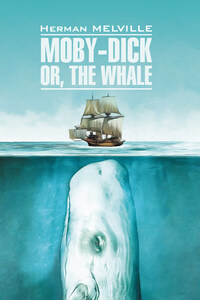In the year 1799, Captain Amasa Delano, of Duxbury, in Massachusetts, commanding a large sealer and general trader, lay at anchor with a valuable cargo, in the harbor of St. Maria – a small, desert, uninhabited island toward the southern extremity of the long coast of Chili. There he had touched for water.
On the second day, not long after dawn, while lying in his berth, his mate came below, informing him that a strange sail was coming into the bay. Ships were then not so plenty in those waters as now. He rose, dressed, and went on deck.
The morning was one peculiar to that coast. Everything was mute and calm; everything gray. The sea, though undulated into long roods of swells, seemed fixed, and was sleeked at the surface like waved lead that has cooled and set in the smelter’s mould. The sky seemed a gray surtout. Flights of troubled gray fowl, kith and kin with flights of troubled gray vapors among which they were mixed, skimmed low and fitfully over the waters, as swallows over meadows before storms. Shadows present, foreshadowing deeper shadows to come.
To Captain Delano’s surprise, the stranger, viewed through the glass, showed no colors; though to do so upon entering a haven, however uninhabited in its shores, where but a single other ship might be lying, was the custom among peaceful seamen of all nations. Considering the lawlessness and loneliness of the spot, and the sort of stories, at that day, associated with those seas, Captain Delano’s surprise might have deepened into some uneasiness had he not been a person of a singularly undistrustful good-nature, not liable, except on extraordinary and repeated incentives, and hardly then, to indulge in personal alarms, any way involving the imputation of malign evil in man. Whether, in view of what humanity is capable, such a trait implies, along with a benevolent heart, more than ordinary quickness and accuracy of intellectual perception, may be left to the wise to determine.
But whatever misgivings might have obtruded on first seeing the stranger, would almost, in any seaman’s mind, have been dissipated by observing that, the ship, in navigating into the harbor, was drawing too near the land; a sunken reef making out off her bow. This seemed to prove her a stranger, indeed, not only to the sealer, but the island; consequently, she could be no wonted freebooter on that ocean. With no small interest, Captain Delano continued to watch her – a proceeding not much facilitated by the vapors partly mantling the hull, through which the far matin light from her cabin streamed equivocally enough; much like the sun – by this time hemisphered on the rim of the horizon, and, apparently, in company with the strange ship entering the harbor – which, wimpled by the same low, creeping clouds, showed not unlike a Lima intriguante’s one sinister eye peering across the Plaza from the Indian loop-hole of her dusk saya-y-manta.
It might have been but a deception of the vapors, but, the longer the stranger was watched the more singular appeared her manoeuvres. Ere long it seemed hard to decide whether she meant to come in or no – what she wanted, or what she was about. The wind, which had breezed up a little during the night, was now extremely light and baffling, which the more increased the apparent uncertainty of her movements. Surmising, at last, that it might be a ship in distress, Captain Delano ordered his whale-boat to be dropped, and, much to the wary opposition of his mate, prepared to board her, and, at the least, pilot her in. On the night previous, a fishing-party of the seamen had gone a long distance to some detached rocks out of sight from the sealer, and, an hour or two before daybreak, had returned, having met with no small success. Presuming that the stranger might have been long off soundings, the good captain put several baskets of the fish, for presents, into his boat, and so pulled away. From her continuing too near the sunken reef, deeming her in danger, calling to his men, he made all haste to apprise those on board of their situation. But, some time ere the boat came up, the wind, light though it was, having shifted, had headed the vessel off, as well as partly broken the vapors from about her.
Upon gaining a less remote view, the ship, when made signally visible on the verge of the leaden-hued swells, with the shreds of fog here and there raggedly furring her, appeared like a white-washed monastery after a thunder-storm, seen perched upon some dun cliff among the Pyrenees. But it was no purely fanciful resemblance which now, for a moment, almost led Captain Delano to think that nothing less than a ship-load of monks was before him. Peering over the bulwarks were what really seemed, in the hazy distance, throngs of dark cowls; while, fitfully revealed through the open port-holes, other dark moving figures were dimly descried, as of Black Friars pacing the cloisters.
Upon a still nigher approach, this appearance was modified, and the true character of the vessel was plain – a Spanish merchantman of the first class, carrying negro slaves, amongst other valuable freight, from one colonial port to another. A very large, and, in its time, a very fine vessel, such as in those days were at intervals encountered along that main; sometimes superseded Acapulco treasure-ships, or retired frigates of the Spanish king’s navy, which, like superannuated Italian palaces, still, under a decline of masters, preserved signs of former state.












